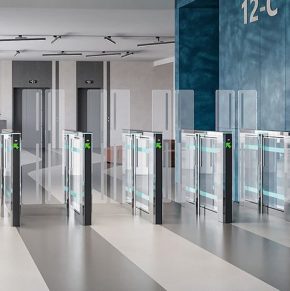
GUEST ARTICLE: SME developers – averting a cashflow crisis
Many SME developers are experiencing cashflow difficulties due to the turbulent UK economy which is increasing the cost of materials and wages. Significant delays in the planning approval process are also slowing down the development phase of sites, which is tying up capital in undeveloped land. This guest article, from Sadie Channing, Director at accountancy firm, Menzies LLP, takes an in-depth look…
As financial pressures mount, maintaining cashflow has become a growing concern. Nevertheless, there are some tools that SME developers can take advantage of, to improve their cash position as effectively as possible.
The country is currently heading towards a balance sheet recession – meaning assets, including property are not worth as much as they were before the downturn got underway. Increasing interest rates and rising costs mean that loans are more expensive and lender support is harder to source. The combination of these factors means that some SME developers are unable to agree the finance necessary to undertake future projects and maintain cashflow, potentially leading to insolvency.
In order to safeguard their financial situation, there are steps that businesses can take to manage their cashflow. First and foremost, they need to have clear goals in respect of their plans for the end of the project – will they be selling property or renting the property out for longer term capital growth?

Once a decision has been made and the type of finance required for the project has been sought, it is important to try and quantify all of the expected project costs before it gets underway. The best way to do this is by creating a cashflow forecast. Getting suppliers to provide fixed costs will ensure the forecast is as accurate as it can be, and it will make future cashflow planning more predictable and reliable.
In addition, costs such as energy or property rents (if applicable) should also be a factor in the forecast so that the business has a detailed understanding of its finances. These forecasts can then highlight high-risk periods throughout the project, when cashflow pressures are likely to be greatest. They can also be used to plan for various scenarios and assist with bank funding applications.
Scenario building will also help to highlight potential areas for reducing costs. For example, it may be more cost-effective to hire equipment rather than purchase it outright. Purchasing equipment could also require storage, which is another ongoing financial and logistical issue that SME developers may not be able to afford.
Negotiating with suppliers can help developers to secure the best price possible. In a competitive marketplace, it could be beneficial to shop around, particularly for smaller developers that may not have forged robust supply partnerships. More established developers, however, may need to rely on their supply networks to help them through the financial challenges that lie ahead.
Previously profitable developers should be aware of the possibility to carry back corporation tax or income tax losses to a previous accounting period in order to claim a refund of tax already paid. In addition developers should consider whether other targeted tax reliefs are available. For example, corporate developers involved in remediating contaminated land, removing asbestos or treating naturally occurring contaminants and plants, such as Japanese Knotweed, may be able to claim Land Remediation Relief. This gives an additional 50% deduction for qualifying costs and loss-making companies can surrender their losses to claim a tax credit (i.e. a tax payment) from HMRC.
Developers should also ensure that they claim allowances on any capital expenditure on plant and machinery. The Annual Investment Allowance (AIA) effectively gives developers a 100% first-year allowance for expenditure on qualifying plant and machinery (and other assets) up to an annual limit of £1 million and can significantly reduce taxable profits or increase tax losses available for carry back.
Taking advantage of HMRC’s ‘Time to Pay’ facility can help developers to manage cashflow, by scheduling tax payments into an affordable monthly scheme. Struggling businesses shouldn’t hesitate to contact HMRC as soon as possible to agree a realistic repayment plan that is affordable and helps them to stay cash positive. Once a repayment plan is agreed, businesses should also be aware that they remain flexible and can be altered over time to reflect changes in circumstance. Importantly, using the ‘Time to Pay’ facility does not affect a business’ credit score, so it makes sense to utilise any flexible payment terms on offer.
While 2023 is going to be another challenging year for SME developers, there are positive steps that they can take to prepare and protect themselves. Making use of the many tools and resources at their disposal will protect their viability and give them greater control of their financial future.
Latest news

15th April 2025
West Fraser: CaberDek earns top marks from Home Counties carpentry specialist
A specialist carpentry sub-contractor covering housing sites across a large swathe of the Home Counties has come to value CaberDek from the West Fraser range for a variety of reasons: not least because the high quality panel product doesn’t destroy his operatives’ electric saws!
Posted in Articles, Building Industry News, Building Products & Structures, Building Systems, Case Studies, Restoration & Refurbishment, Retrofit & Renovation, Roofs, Timber Buildings and Timber Products, Wooden products
15th April 2025
GEZE: The Role of Access Control Systems in Enhancing Building Safety
Jane Elvins, Specification and Business Development Manager at GEZE UK, delves into the role of access control systems in enhancing building safety…
Posted in Access Control & Door Entry Systems, Architectural Ironmongery, Articles, Building Industry News, Building Products & Structures, Building Services, Doors, Facility Management & Building Services, Health & Safety, Restoration & Refurbishment, Retrofit & Renovation, Security and Fire Protection
11th April 2025
Don’t Do a Dave! It’s Time to Lock FIT Show 2025 in Your Calendar!
It’s that time again – FIT Show is back! You could be forgiven for thinking there won’t be much new to see when FIT Show returns to the NEC from 29 April – 1 May. Wrong!
Posted in Articles, Building Industry Events, Building Industry News, Building Products & Structures, Building Services, Continuing Professional Development (CPD's), Exhibitions and Conferences, Information Technology, Innovations & New Products, Restoration & Refurbishment, Retrofit & Renovation, Seminars, Training
11th April 2025
Insight Data: Boost construction success with project and prospect data
For those working in construction – in whatever capacity – the last few years haven’t been much fun. And according to the latest statistics, it would seem the challenges are continuing – Alex Tremlett, Insight Data’s Commercial Director, has more…
Posted in Articles, Building Industry News, Building Services, Information Technology, news, Research & Materials Testing
 Sign up:
Sign up: